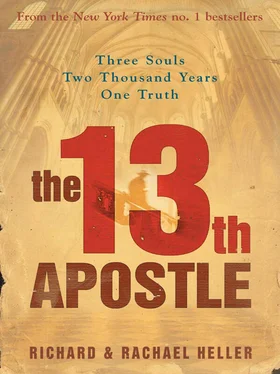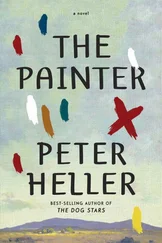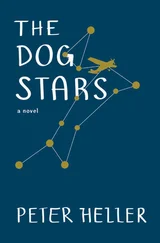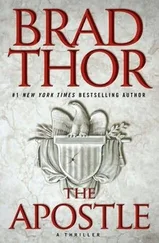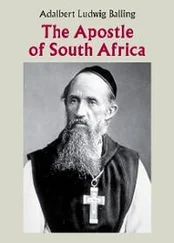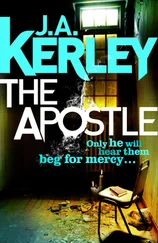In silence, the monks prayed for the heretic’s soul. Only one among them did not.
I, alone, prayed for a miracle; some divine intervention that might spare the man whose soul needed no redemption; this brave knight who had fought so valiantly in the Holy Land and who now offered up his life, yet again, in service to God and his fellow man.
Head still bowed, I ventured one quick glance. Tears flowed from the prisoner’s eyes, yet he offered no protest. Though I stood well within his gaze, he did not look in my direction.
Guided by novice-master’s hand, the oldest of the novitiates ladled oil about the great pile of faggots, careful to spoon the greatest portion over the bottommost sticks, diminishing the application as he approached the top of the pile. The oil had been freshly rendered only that morning from the fat of the foulest of slaughtered livestock, a peasant’s old pig, diseased and pocked, that had gone to its death squealing in pain and terror, in full earshot of the prisoner’s cell.
Two rags soaked up the remainder of the oil. These novice-master used to anoint the heretic. As he smeared the foul-smelling viscous fluid over the prisoner’s bare shoulders and shaven head, he continued his instructions to his charges. The oil must be smeared evenly over the exposed flesh so as to encourage the start of a flame, then soaked into the jute to sustain the burning.
Amidst the instruction, the heretic continued in silence.
Novice-master signaled the novitiates to retreat, then stepped back to join the monks’ circle.
All waited, eyes cast toward the sky. In accordance with the Inquisitor’s Dictates for Redemption, the fire would be started at the moment when the light of the first star pierced the night. I beseeched God that, although the skies would grow dark, no star would appear. And for a time none did.
In the fading light, three birds flew across the horizon and disappeared into the heavens, one leading the two. They called loudly into the approaching night, one to the other, staying in perfect formation, flying as one. I knew this to be a sign that One far greater than we mortals waited to guide the prisoner into heaven.
A single star blinked and was gone. This was the signal for which all had been waiting. Father Abbot emerged from the shadows and approached the circle, an oil-soaked torch in one hand, a candle in the other, his eyes fixed upon me.
With sudden terror, it came to me that the Abbot John might command me to light the fire. Could even he require me to enact such a deed in order to prove my fidelity? If so, I could not comply. Though my sacred vows to the Church would be broken, though the repercussions of my rebellion might echo through eternity, this, Dear God, I could not do.
But Father Abbot John had other intentions. He lit the torch with the candle then passed it to one of the other monks, motioning me to remain by his side. It seemed to me that a smile crossed the Abbot’s lips but nothing more was said. Then, in the light of that sputtering candle, he turned so that his prisoner could not fail to witness the only act that might yet bring a cry of repentance. From beneath his robes, the Abbot withdrew the moldering wooden box still wrapped in tattered cloth.
The heretic’s gaze fixed on the bundle and then found me. Only then did I see fear spring to his eyes; fear not for himself but for something far greater, that which lay within the crumbling wooden box. As we had in our youth, I shared with the man they now called heretic a single terror, like none other before. Might the Abbot yet commit an atrocity far greater than the taking of a single innocent life? Might he yet commit a sacrilege against man and against God too terrible to imagine?
Professor Ludlow frowned. Hints, suggestions, intimations. Nothing more. He eyes fell on a small piece of parchment that had been wedged into the hand-sewn binding. It had been hastily written, it seemed, but the ink remained dark and clear.
With care, the Professor inched the hidden message from the binding. He read the words, smiled, sighed deeply, and closed the diary for which he would soon forfeit his life.
Present day
Day One, early evening
The New York City Grill
In the dim light of the restaurant, Gil Pearson strained to check his watch. He’d give the Professor and Sabbie ten more minutes to show. No more. He was tired and hungry and wanted to go home, grab something to eat, and crawl into bed. This was the last sales pitch dinner that George was going to get him to agree to.
What a way to start a weekend.
“Do this one as a favor to me,” George had cajoled. “You know you’re the reason they come to us. All any client wants is a chance to meet the man who helped rid the world of CyberStrep. You’re a celebrity, for God’s sake. You know they’ll pay triple just to be able to brag to their friends they have you watching over their systems,” George added, trying to appear as endearing as his three chins would permit.
Although Gil hated to admit it, George was right. Since graduating top of his class from Massachusetts Institute of Technology two decades ago, Gil’s anti-hacking discovery had changed the way virtually every major data protection company in the world approached the securing of high-risk and top secret information. For three years running, he had been named Man of the Year by the National Association of Artificial Intelligence, yet no client ever referred to these accomplishments. Only when the New York Times reported that Gil was the creator of the computer program that had eradicated the data-eating virus that held the Internet hostage for almost a month, did anyone take notice. The whole thing might have faded if People magazine hadn’t jumped on the story. They spent three-quarters of the article describing his “rugged good looks” and barely mentioned his work.
Lucy had teased him unmercifully. Within days of the article’s publication, an ever-hungry storm of reporters and paparazzi began to beat a path to his—or rather to CyberNet Forensics, Inc.’s—door.
The company’s worth had gone through the roof, Gil’s salary had more than quadrupled, and he had been dragged, kicking and screaming, from the privacy of his little computer room to the bright lights of celebrity.
That had been four years ago. It couldn’t have come at a worse time. Lucy had just been diagnosed with pancreatic cancer and, though every minute away from her felt like the greatest betrayal he could imagine, Gil had convinced himself that he had to cash in on his fame so that he could pump up his salary while he could. It was the only way he could be sure that Lucy would get the best possible care in the hard times that lay ahead.
A sour taste of bile rose in his throat.
Son-of-a-bitch doctor.
Right from the beginning the bastard had known that Lucy didn’t have more than six weeks left. Had the quack told Gil the truth, he would have spent every precious minute with her. But, instead, the doctor had led him to believe that because of her youth and strength, Lucy’s decline would be unmercifully slow. Months—maybe a year—of painful deterioration were inevitable, the doctor had said; an unthinkable time in which Lucy’s pain could be eased by the best medical care that money could buy.
Instead, she was gone in less than a month, only two weeks before her thirty-fourth birthday. Gil had spent much of that time away from her, in endless interviews, answering asinine questions posed by one stupid reporter after another. Less than a week after it was over, one tabloid cover sported his photo, snapped at the cemetery. The inside copy reported that he was recently widowed and implied that after a suitable time of mourning, he would be an excellent catch.
Читать дальше
